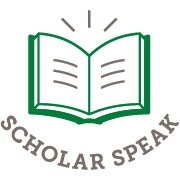Written by: Abbie Teel
Background
The Access Services department at Willis Library, located on the University of North Texas main campus, functions as the primary public facing department for research and reference inquiries. Access Services is the first front desk patrons encounter when entering the library. Access Services houses the popular ‘AskUs’ Team who assist patrons with research needs. Comprised of faculty, staff, Graduate Services Assistants (GSAs), and Library Service Student Assistants (LSAAs), this department is very diverse and serves a wide spectrum of patrons and academic disciplines.
This informal research study stems from a discussion initiated by a question that was directed to the AskUs email, typically answered by the GSAs, regarding Algae Blooms. Despite lacking natural science degrees, a collaborative effort between a part time employee (myself) and a staff member ensued to locate optimal resources for the patron. Subsequently, the inquiry was escalated to the science subject librarian—the perfect resource for advanced research that could be considered niche within different fields. However, after the email was sent, the part time employee and staff member were discussing the interesting topic and another, different staff member overheard the conversation and shared that they had a substantial background in science with multiple concentrations. This individual then shared some really interesting, fun facts about Algae Blooms all from memory. Needless to say, it was rather impressive.
Informal Study
The conversation between these three employees sparked a question: what academic backgrounds do employees in Access Services have, aside from the GSAs who are required to be pursuing higher degrees within the College of Information? A survey was distributed that posed 10 questions to employees of the Access Services department. 20 responses were recorded.
To establish background on this casual study, out of the 20 responses, 15% were faculty, 25% were staff, 20% were GSAs, 35% were LSAAs, and 5% were part-time.

Undergraduate Degrees in the Department
Regarding undergraduate qualifications, 75% of respondents possessed undergraduate degrees, 20% were actively pursuing such degrees, and 5% did not have and were not pursuing an undergraduate degree. Analysis of the specific fields of undergraduate study revealed a diverse array of disciplines within Access Services, encompassing 12 distinct fields.
Notable among these were degrees in English, with diverse subfields including Linguistics, Technical Communications, Creative Writing, Literature, and Cultural Studies, alongside specialized domains such as Civil Engineering, Social Work, Dental Surgery, Pharmaceutical Sciences, Information Science, and Journalism. Additionally, respondents often had received minors, reflecting multidisciplinary educational trajectories, with fields including Japanese, French, Business Foundation, Psychology, and Philosophy.
Graduate Degrees in Department
A significant proportion of respondents were either currently pursuing or had already obtained graduate degrees. Specifically, 40% were actively engaged in graduate studies, 35% possessed graduate qualifications, and 25% did not have and were not pursuing a graduate degree. Surprisingly, all graduate degrees represented within the department, including those of non-GSAs, were from the College of Information, encompassing disciplines such as Library Science, Data Science, and Information Science, with various specializations.
- Library Science – General Program, Youth Services, Archival Studies
- Data Science
- Information Science
- Health Informatics
- Library and Information Science

When asked about degrees and certificates that did not fall in the traditional undergraduate and graduate degree classifications, the following were listed:
- Asian Studies
- Associate Degrees in Science
- Advanced Management in Libraries and Information Agencies
Furthering Education
When questioned about their interest in furthering education, 42.4% expressed a willingness to pursue another degree in the future. Notably, respondents showcased a wide array of aspirations regarding their future educational endeavors.
- Masters in English
- Ph.D. in Information Science
- Master’s in History
- Master’s in Film Production
- Masters/Ph.D. in Anthropology
- Ph.D. in Learning Technologies
- Master’s in Creative Writing with a Nonfiction Concentration
Theme
One recurring theme in the data is the prevalence of humanities backgrounds among Access Services personnel. This suggests a strong aptitude for creative expression and effective communication skills. As the department serves as a public-facing department within the library, patrons can trust that they’ll encounter employees with diverse competencies. Whether directly addressing inquiries or facilitating assistance, these personnel are well-equipped to meet the needs of patrons with confidence.
Another prominent theme is the department’s emphasis on rich educational diversity and evident interdisciplinary collaboration. This highlights a strong commitment to embracing individuals from diverse academic backgrounds and nurturing a culture of teamwork. By fostering such inclusivity, the department encourages innovative problem-solving, which ultimately leads to more effective outcomes for the patrons it serves. This dual focus on educational diversity and interdisciplinary collaboration not only enriches the department’s collective knowledge but also enhances its ability to meet the diverse needs of its patrons with creative and efficient solutions.
At the front desk, patrons can expect excellent service, and yet there is even more assistance available for advanced research needs. One valuable resource provided by the library is the opportunity to meet with a subject librarian. These experts have extensive knowledge and backgrounds across various fields. You can easily explore the list of subject librarians and search by field, topic, or name.
Conclusion
The data, overall, suggests a strong emphasis on education and career advancement within the Access Services community, with a notable interest in both traditional and emerging fields of study. No matter the area patrons require support in, Access Services is more than ready to assist.
References
University Libraries. (n.d.). Subject Librarians. https://library.unt.edu/subject-librarians/



Leave a Reply